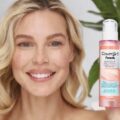As we journey through life, it’s natural to want to preserve our youthful appearance and vitality. The anti-aging industry has capitalized on this desire, offering a vast array of products promising to turn back the clock. However, it’s essential to approach these claims with a balanced perspective and understand the limitations of anti-aging products. In this article, we’ll explore what anti-aging products can realistically achieve and why true beauty comes from within.
Understanding the Science Behind Aging
Before delving into anti-aging products, it’s crucial to understand the aging process itself. Aging is a complex biological phenomenon influenced by various factors, including genetics, lifestyle, environment, and cellular processes. As we age, our bodies produce less collagen and elastin, leading to wrinkles and sagging skin. Additionally, cellular damage accumulates over time, affecting our overall health and appearance.
While we can’t stop the aging process entirely, we can take steps to support our body’s natural functions and promote overall well-being. This holistic approach to aging gracefully is often more effective and fulfilling than relying solely on anti-aging products.
The Promise and Reality of Anti-Aging Products
Anti-aging products often make bold claims about their ability to reverse the signs of aging. While some products can indeed improve skin appearance and texture, it’s important to have realistic expectations. Most anti-aging products work on the surface level, providing temporary improvements rather than long-lasting changes.
Common ingredients in anti-aging products include:
- Retinoids: Derived from Vitamin A, they can improve skin texture and reduce fine lines.
- Antioxidants: These help protect skin from free radical damage.
- Peptides: They may stimulate collagen production.
- Hyaluronic acid: This helps hydrate and plump the skin.
While these ingredients can be beneficial, their effects are often subtle and temporary. No cream or serum can completely erase deep wrinkles or dramatically lift sagging skin without more invasive procedures.
The Importance of a Holistic Approach to Aging
Instead of focusing solely on anti-aging products, consider adopting a holistic approach to aging gracefully. This involves nurturing your body, mind, and spirit to promote overall well-being and radiance. Here are some key elements of a holistic anti-aging strategy:
- Nourish your body: Eat a balanced diet rich in fruits, vegetables, whole grains, and lean proteins. Stay hydrated and limit processed foods and sugar.
- Protect your skin: Use sunscreen daily to prevent sun damage, which is a major contributor to premature aging.
- Stay active: Regular exercise improves circulation, boosts mood, and helps maintain muscle tone and flexibility.
- Prioritize sleep: Adequate sleep is crucial for cellular repair and overall health.
- Manage stress: Practice stress-reduction techniques like meditation, yoga, or deep breathing exercises.
- Cultivate positive relationships: Strong social connections contribute to emotional well-being and longevity.
Embracing Your Unique Beauty at Every Age
One of the most powerful anti-aging strategies is to embrace your unique beauty at every stage of life. Society often emphasizes youth as the pinnacle of beauty, but true radiance comes from self-acceptance and confidence. Here are some ways to cultivate a positive self-image as you age:
- Practice self-compassion and avoid comparing yourself to unrealistic beauty standards.
- Focus on your personal growth and accomplishments rather than physical appearance alone.
- Surround yourself with positive influences that celebrate diversity and aging.
- Engage in activities that bring you joy and fulfillment.
- Share your wisdom and experiences with others, recognizing the value of your life journey.
Remember, the lines on your face tell the story of a life well-lived, filled with laughter, love, and experiences. Embrace them as badges of honor rather than flaws to be erased.
Making Informed Choices About Anti-Aging Products
While anti-aging products have limitations, they can still play a role in a comprehensive skincare routine. When choosing products, consider the following tips:
- Research ingredients and look for products with scientifically-backed benefits.
- Be patient and consistent – most skincare products take weeks or months to show results.
- Consult with a dermatologist for personalized advice on your skin’s needs.
- Remember that expensive doesn’t always mean better – focus on ingredients rather than brand names.
- Use products appropriate for your skin type and concerns.
Ultimately, the best anti-aging strategy is one that makes you feel confident and comfortable in your own skin.
FAQ: Common Questions About Anti-Aging Products
Q1: At what age should I start using anti-aging products?
A1: There’s no specific age to start, but many dermatologists recommend incorporating basic anti-aging products like sunscreen and moisturizer in your 20s. More targeted treatments can be added as needed in your 30s and beyond.
Q2: Can anti-aging products completely eliminate wrinkles?
A2: While some products can improve the appearance of fine lines and wrinkles, complete elimination is unlikely without more invasive procedures. Anti-aging products typically provide subtle improvements rather than dramatic transformations.
Q3: Are natural anti-aging products more effective than synthetic ones?
A3: Not necessarily. Both natural and synthetic ingredients can be effective. What matters most is the specific active ingredients and their concentrations, regardless of whether they’re derived from natural or synthetic sources.
Q4: How long does it take to see results from anti-aging products?
A4: Results vary depending on the product and individual, but most skincare experts recommend using a product consistently for at least 4-6 weeks before expecting to see noticeable improvements.
Q5: Can lifestyle changes be as effective as anti-aging products?
A5: In many cases, yes. Lifestyle factors like diet, exercise, sleep, and stress management play a significant role in how we age. A healthy lifestyle combined with appropriate skincare can often yield better results than relying on products alone.
In conclusion, while anti-aging products can play a role in maintaining healthy skin, they are not miracle solutions. True beauty and vitality come from a holistic approach to well-being that nurtures body, mind, and spirit. Embrace your unique journey through life, and let your inner radiance shine through at every age.









